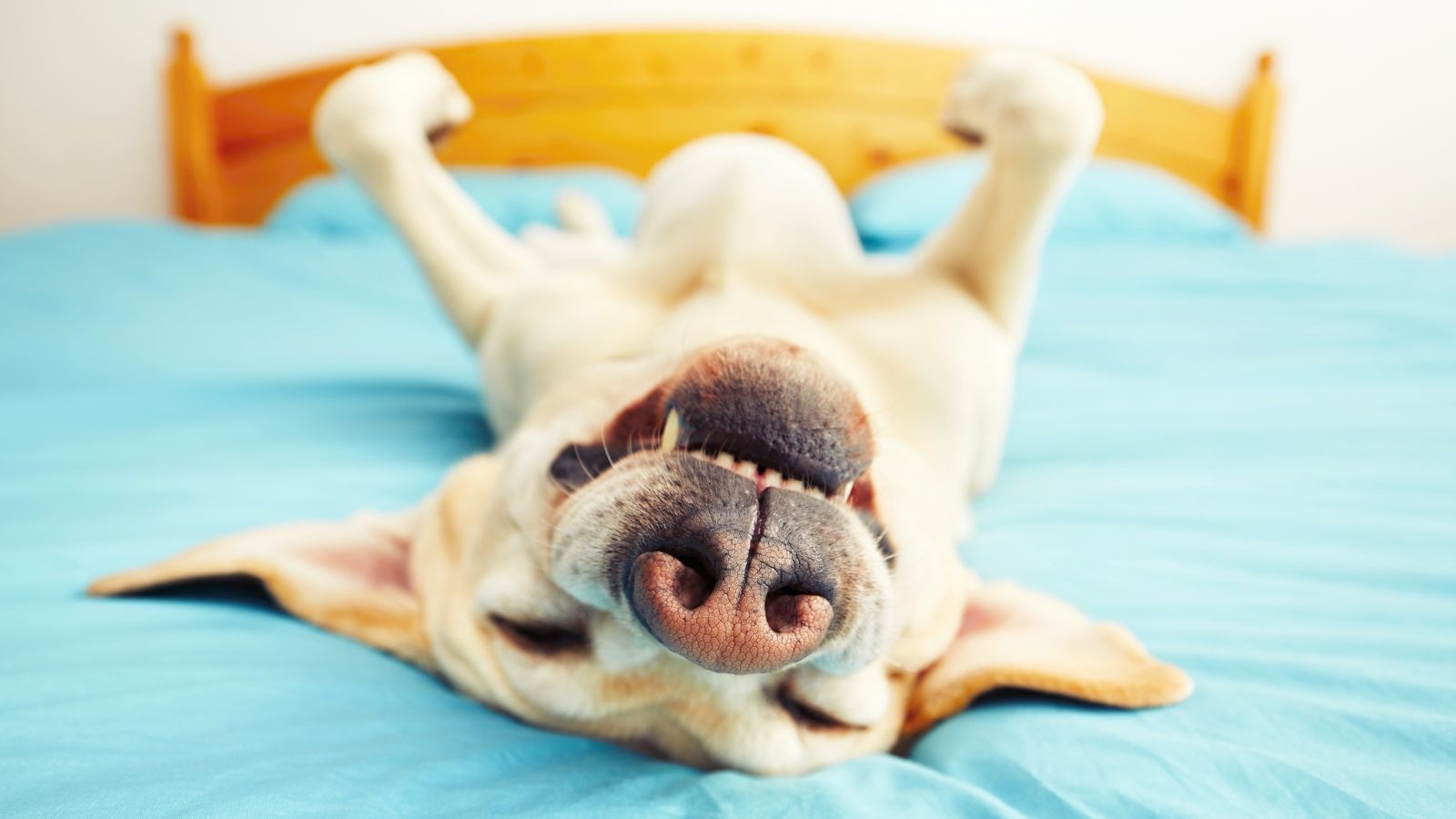Have you ever wondered what your pet gets up to when you’re not at home? While each pet is different, many exhibit the same behaviors due to boredom, anxiety, or just their natural instincts. In this article, we’ll share 17 common things your pet may do when you’re away to give you a better idea.
Explores Forbidden Territories
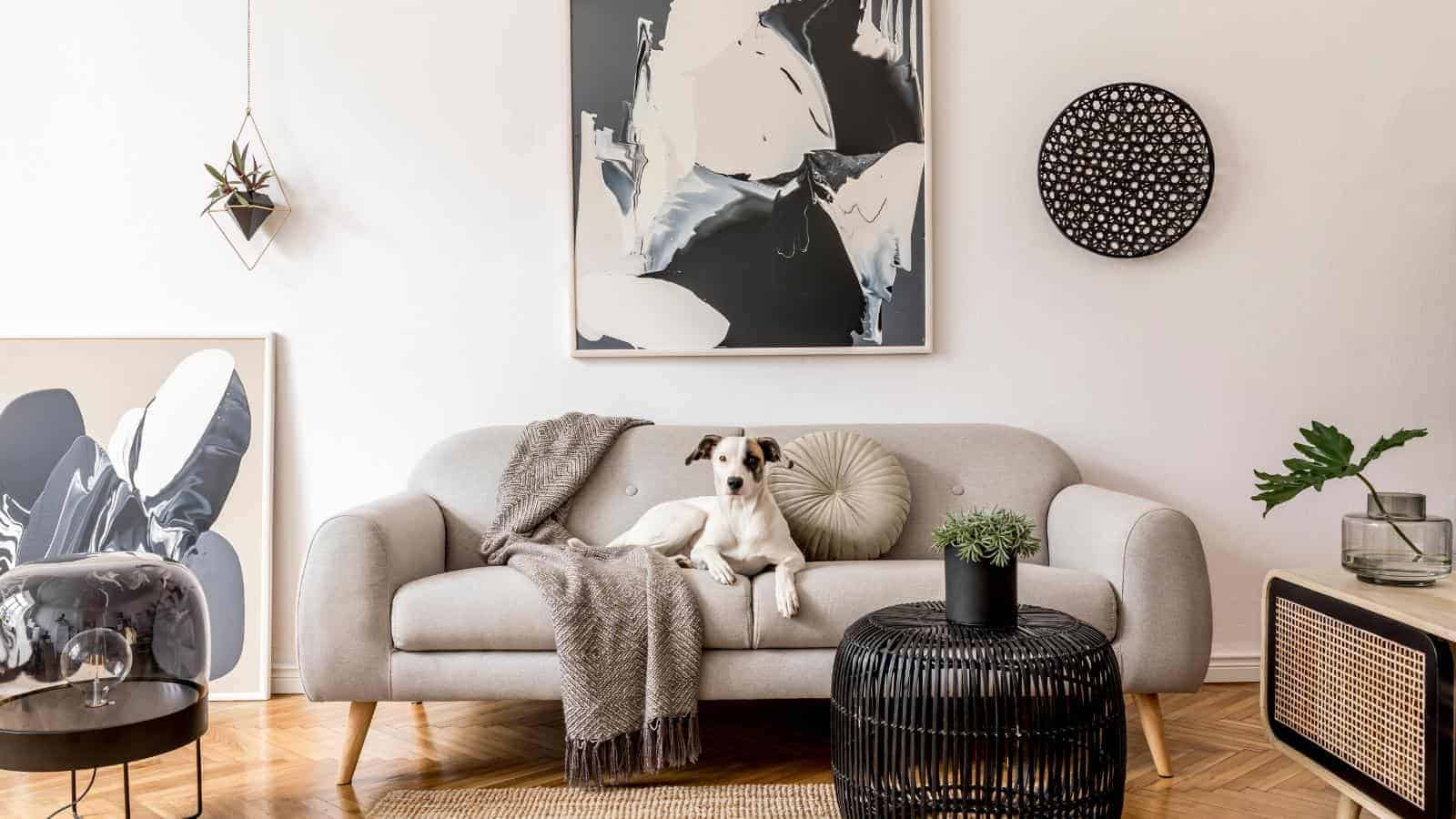
This may pain you to hear, but pets often explore areas that are off-limits when you’re home. They may sneak into the kitchen, lounge on your brand-new white couch, or rummage through the trash. Preventive measures include closing doors, securing trash cans, and pet-proofing dangerous areas.
Watches Out the Window
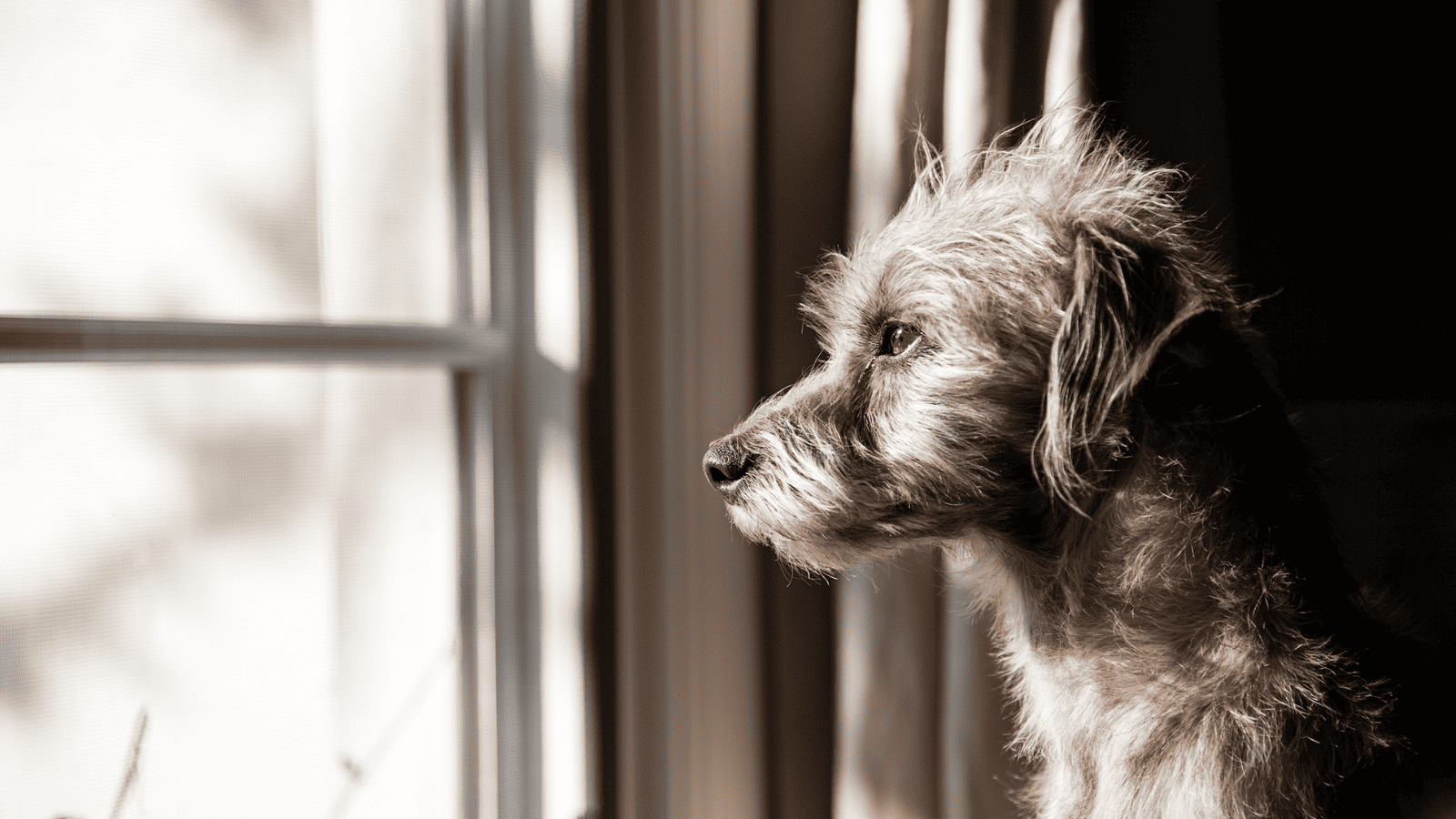
Many pets spend considerable amounts of time looking out the window when their owners aren’t home. Why is this? Wag! says that dogs, when alone, “may get bored, depressed, stressed, and even frustrated with their surroundings. When they look out the window, it is as if the outdoors is a coping mechanism.”
Naps in Unusual Places
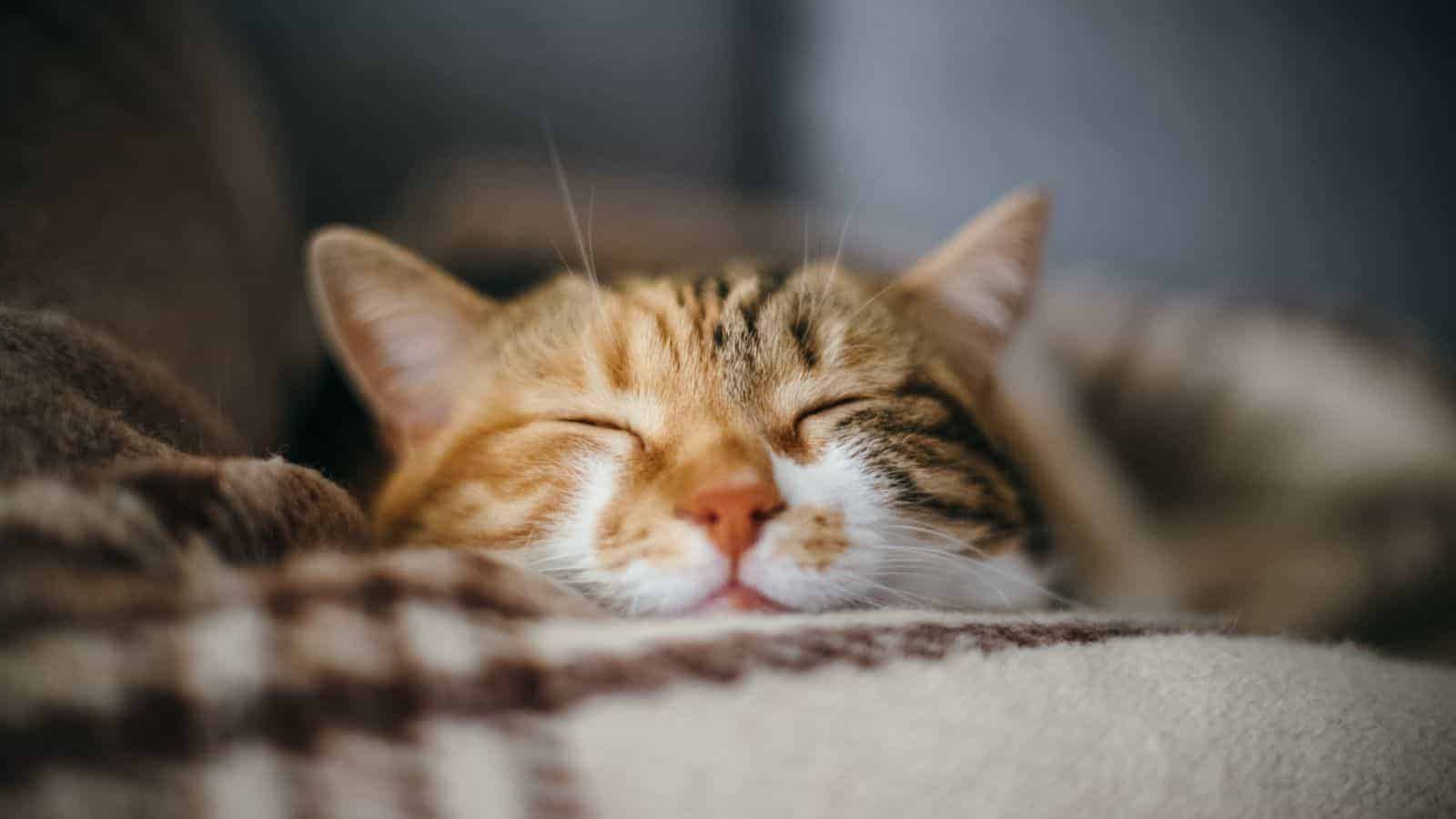
Pets may choose new, sometimes odd, locations for sleep when you’re gone—like laundry piles or sinks. This behavior could be due to the comfort or scent of their owner lingering on items or they’re just exploring and found a new spot. Providing a cozy and designated sleeping area may encourage them to sleep there instead.
Plays With Toys
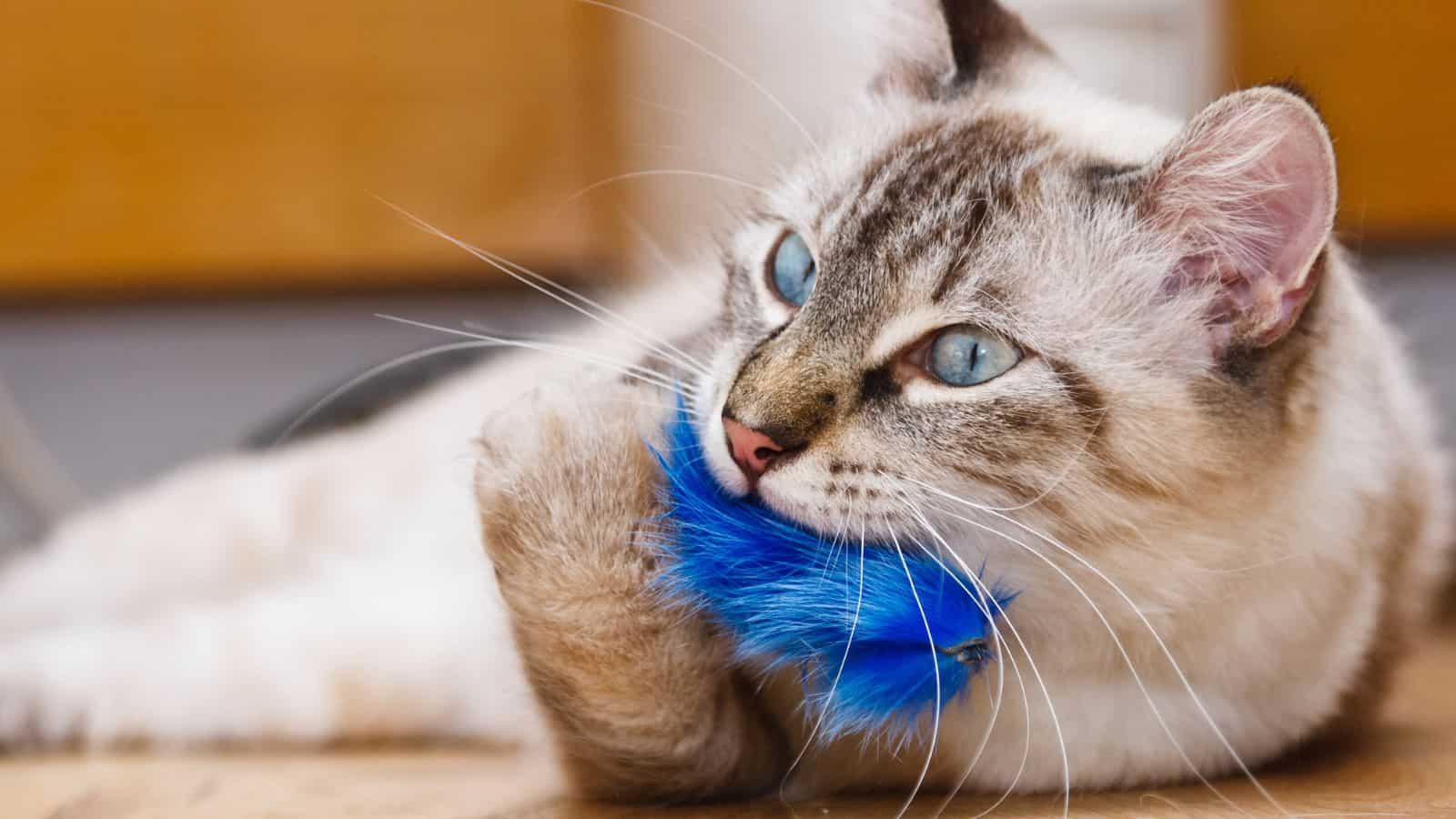
Pets may engage more with their toys to self-entertain since you’re not around to play with them. With this in mind, it’s a good idea to keep rotating toys so they can remain interested while you’re away. It’s also important to ensure the toys are safe for unsupervised play.
Overeats or Ignores Food

Some pets may eat more due to boredom or anxiety, while others might not eat at all—both of which are concerning. Timed feeders can help manage food intake for those who overeat. For those who don’t eat at all, it’s best to have someone stop by to ensure your pet at least gets a few treats.
Vocalizes More Than Usual

Dogs may bark and cats might meow more often due to loneliness or separation anxiety. “In both cats and dogs, separation-related behaviors can be linked to when a particular member of the household leaves,” as per Cats Protection. Background noise like a radio can help soothe them.
Destructive Behavior
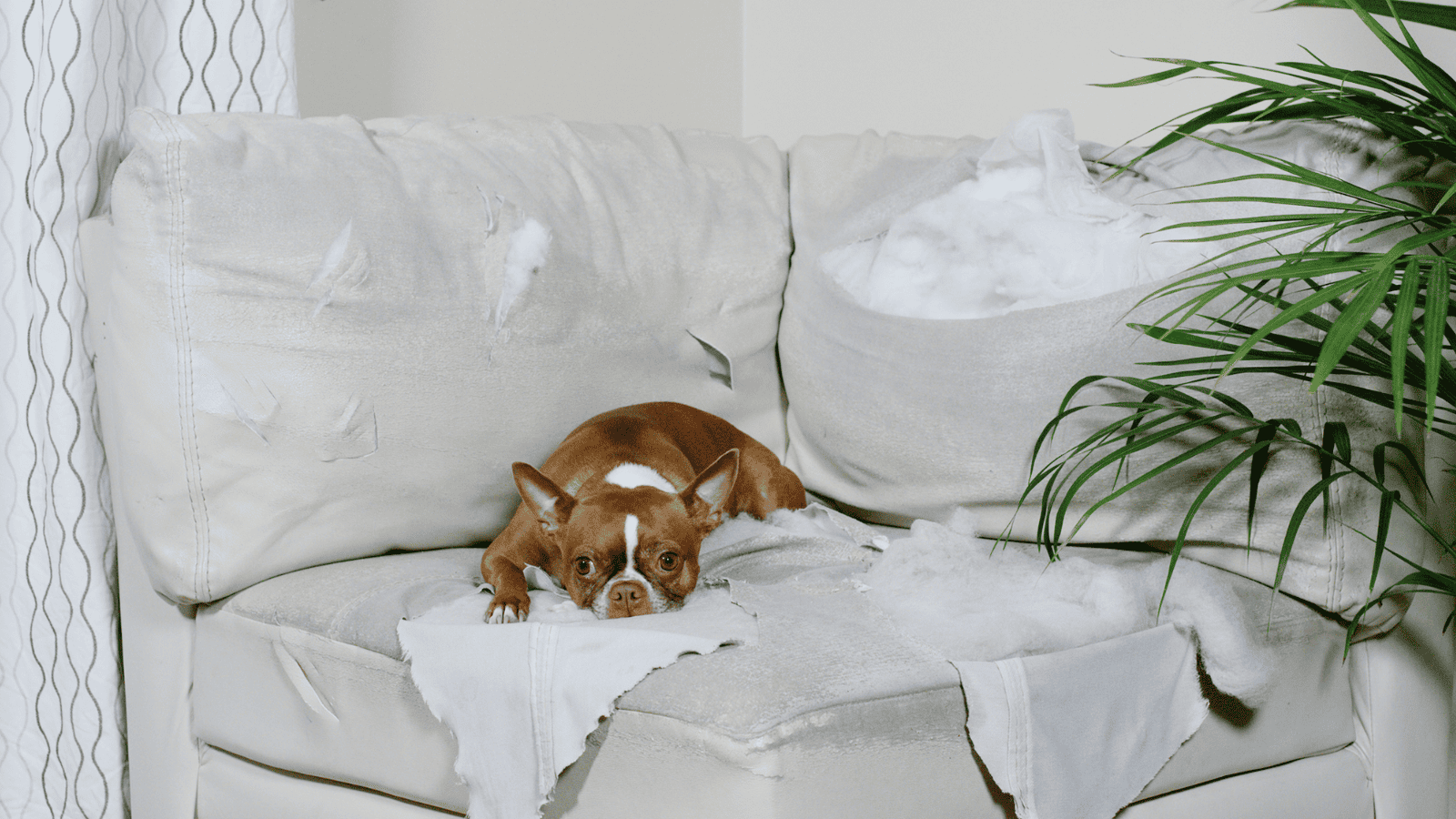
Chewing, scratching, or tearing items can occur due to anxiety or a lack of stimulation when you’re away. Providing chew toys and scratch posts can help mitigate this behavior. Regular exercise and mental stimulation before you leave are also key.
Litter Box Issues
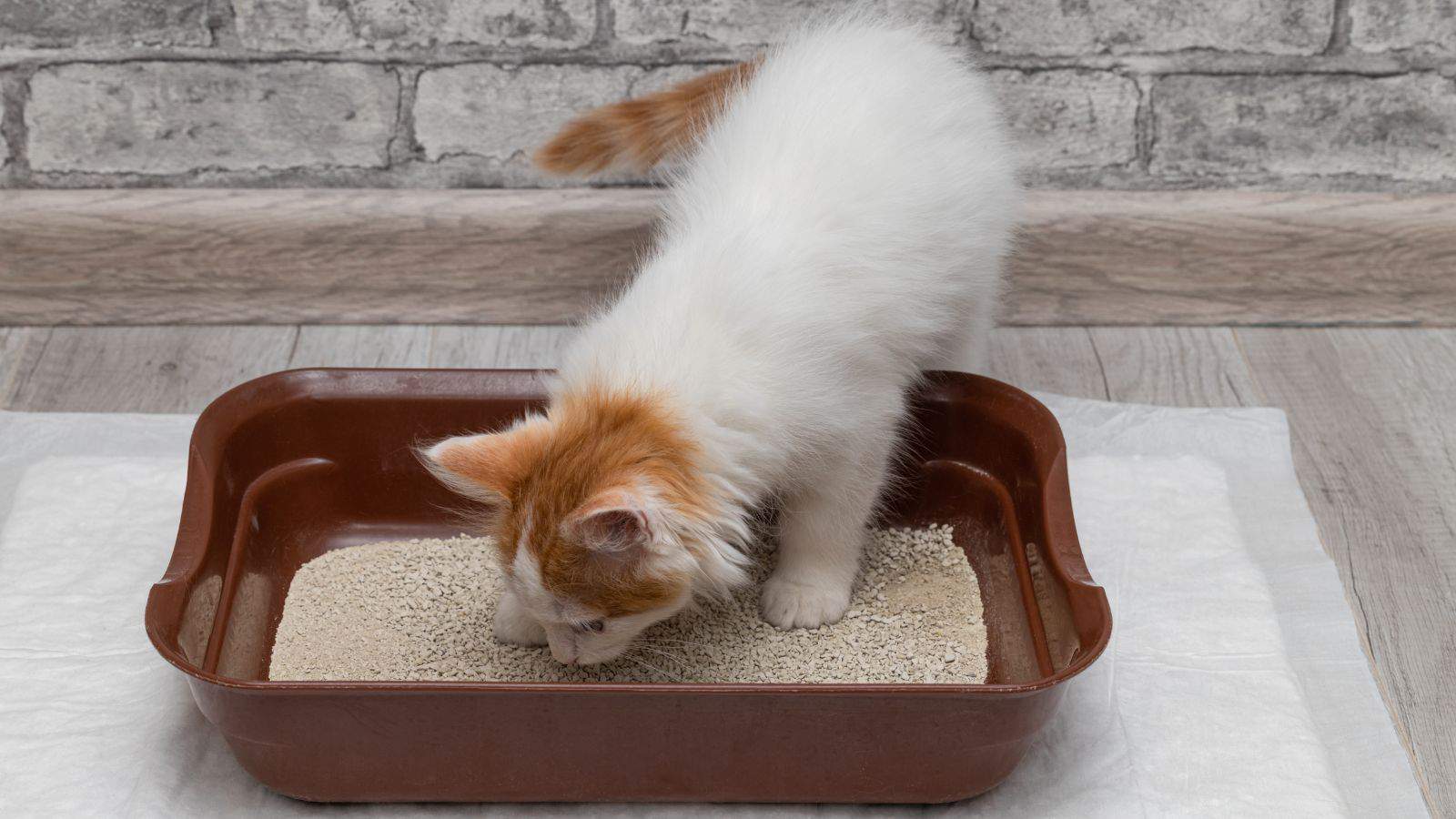
Sadly, some cats may avoid using the litter box properly due to the stress of their owner being away. They may even act out and go to the bathroom where they’re not supposed to. Keeping the litter box clean and in a quiet area helps encourage use.
Hides
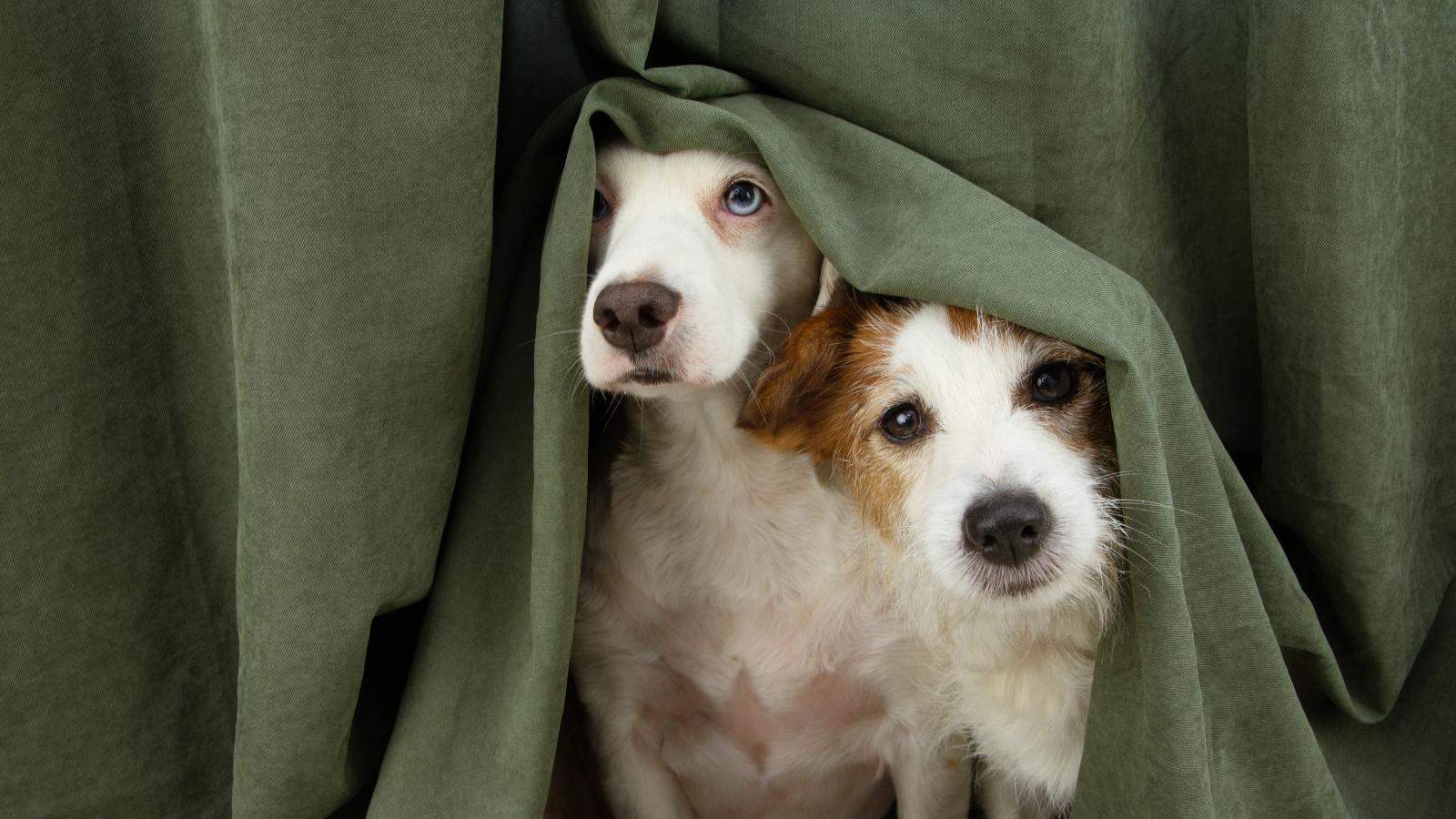
Other pets might hide under furniture or in dark spaces when alone, which can be due to noise anxiety or their discomfort with being alone. Creating a safe, quiet space for hiding can provide comfort for your pet until you can return.
Searches for Your Scent
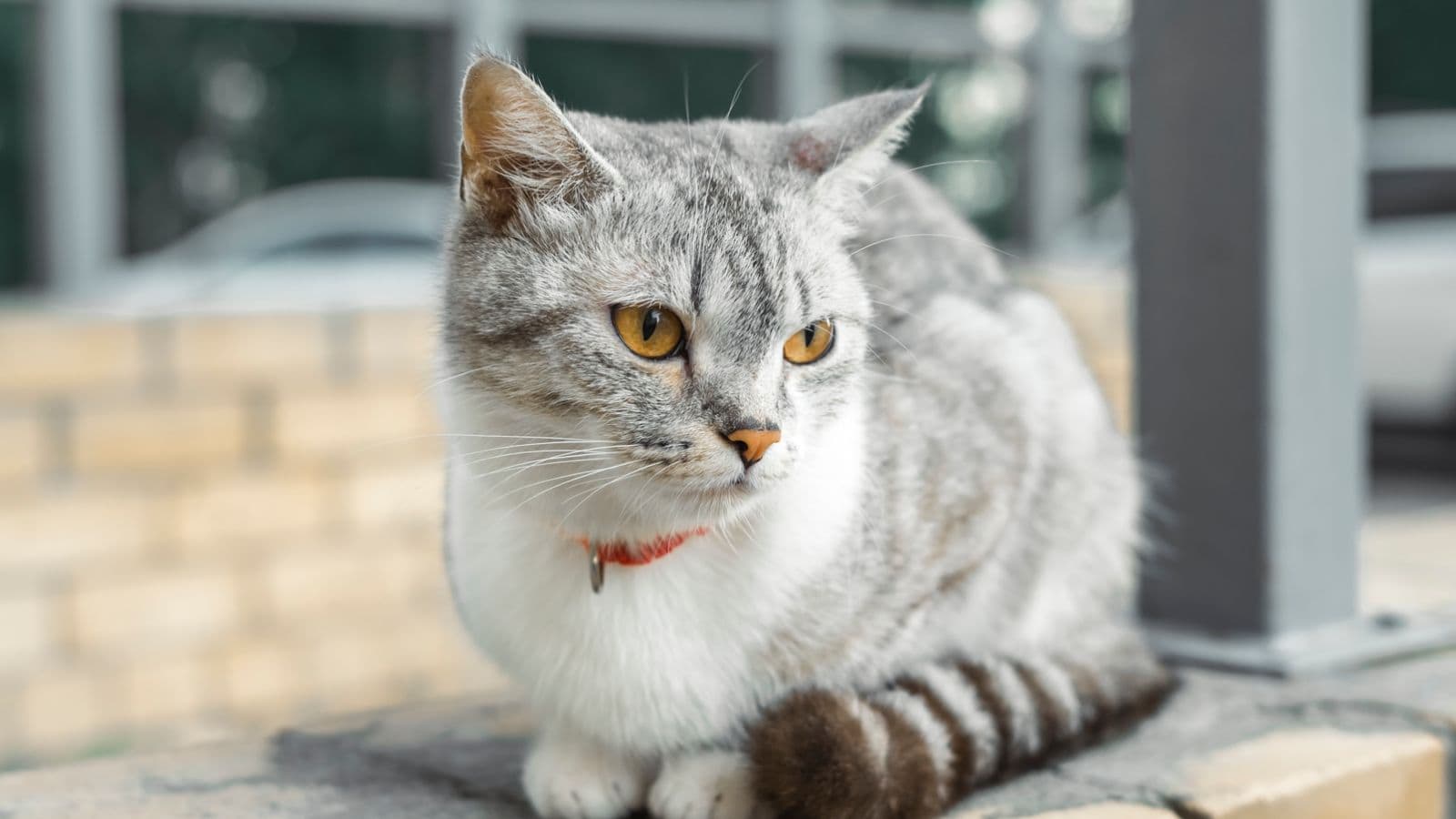
Pets often look for items that smell like their owners, such as clothing or bedding. As shared by Yappy, “Your scent plays a huge role in calming your pup whenever they’re missing you and feeling anxious.” The same goes for cats. Leaving an item with your scent can help comfort them.
Guarding Behaviors
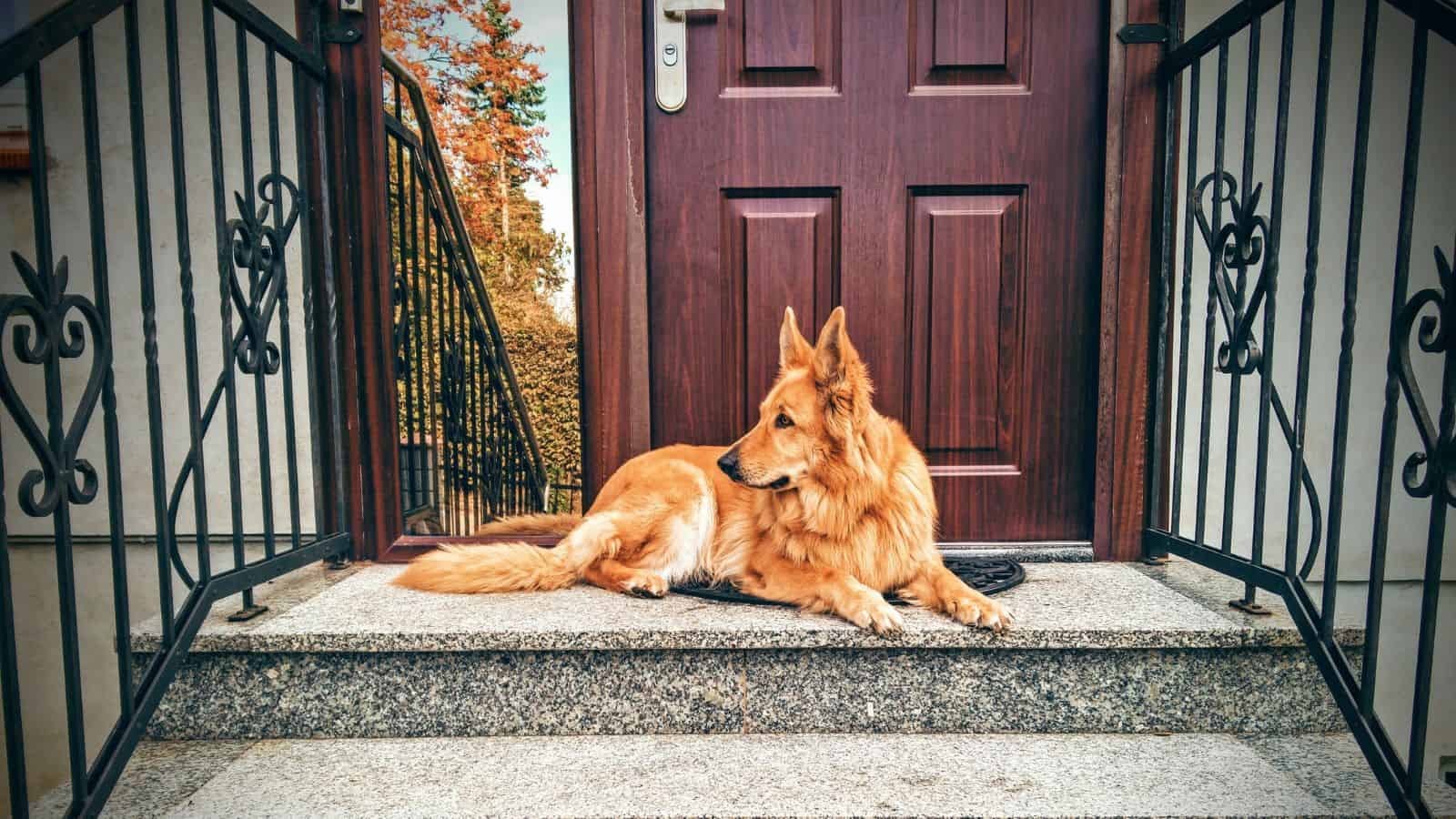
Dogs especially may take up guarding in your absence, watching doors or windows. While it’s good to know that your home is protected, training can help manage overly protective behaviors. Providing a view of the outside can also help them stay calm.
Paw Licking or Self-Grooming
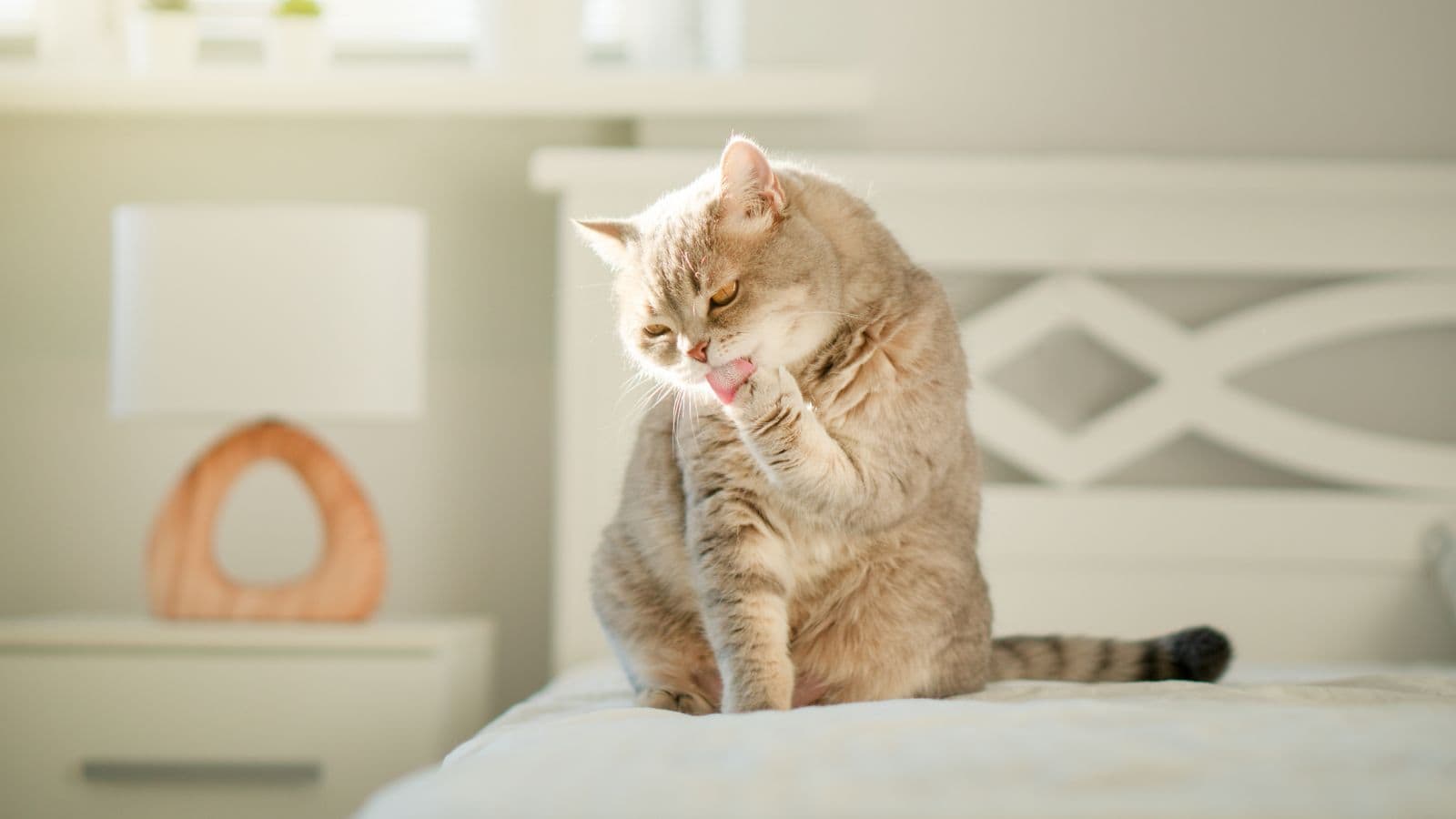
Excessive grooming can be a sign of stress, so be sure to watch out for signs and symptoms of this when you return home or via a pet camera. Regular grooming routines can help prevent this habit, and you should consult a vet if the behavior becomes obsessive.
Watches TV or Reacts to Sounds
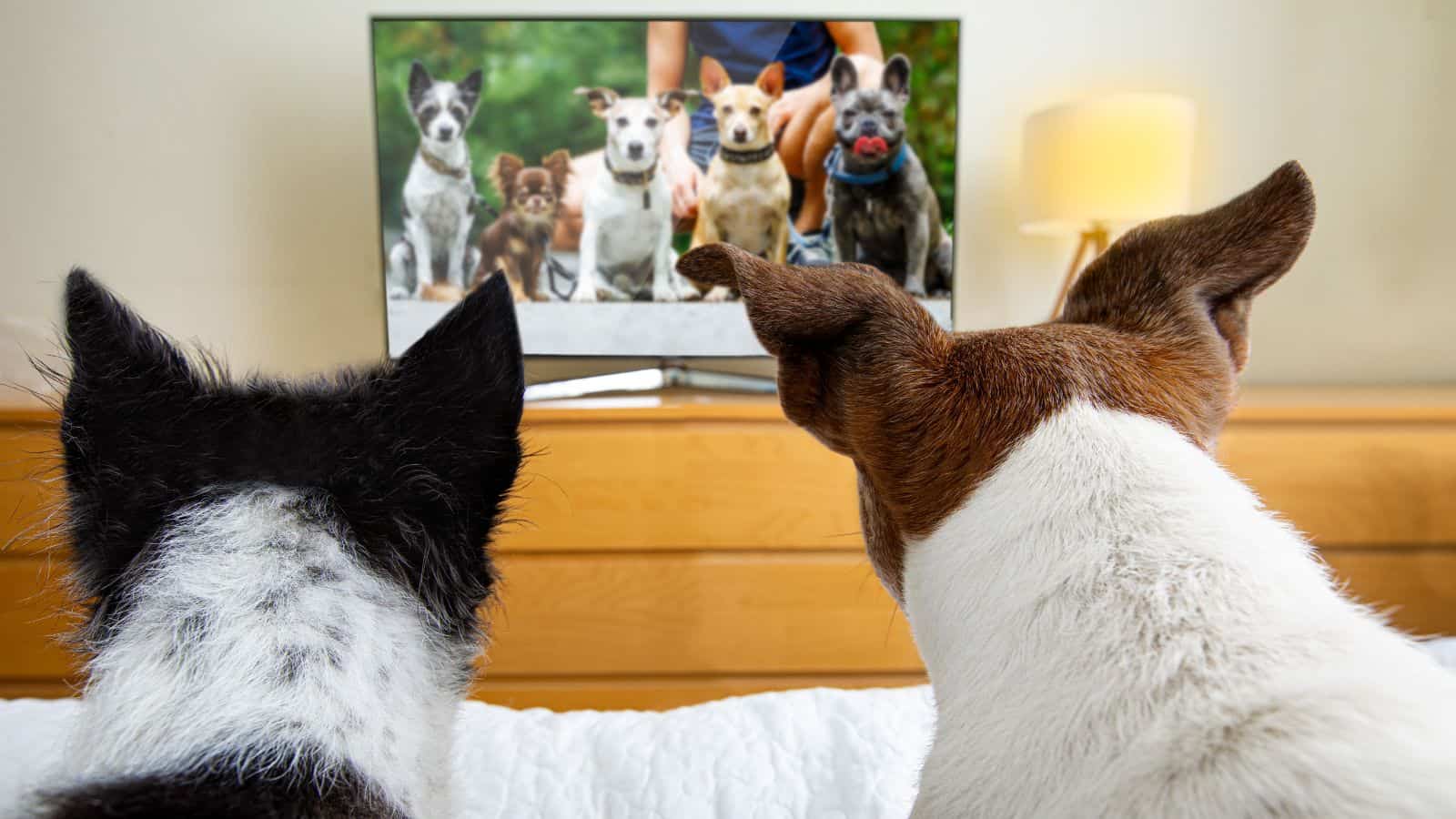
As mentioned, leaving the TV or radio on can provide comforting background noise for your pets when they’re alone, but some pets may react badly to loud sounds from the TV or outside noises. It’s important to keep the volume at a moderate level so as not to alarm your pet.
Fetches Personal Items
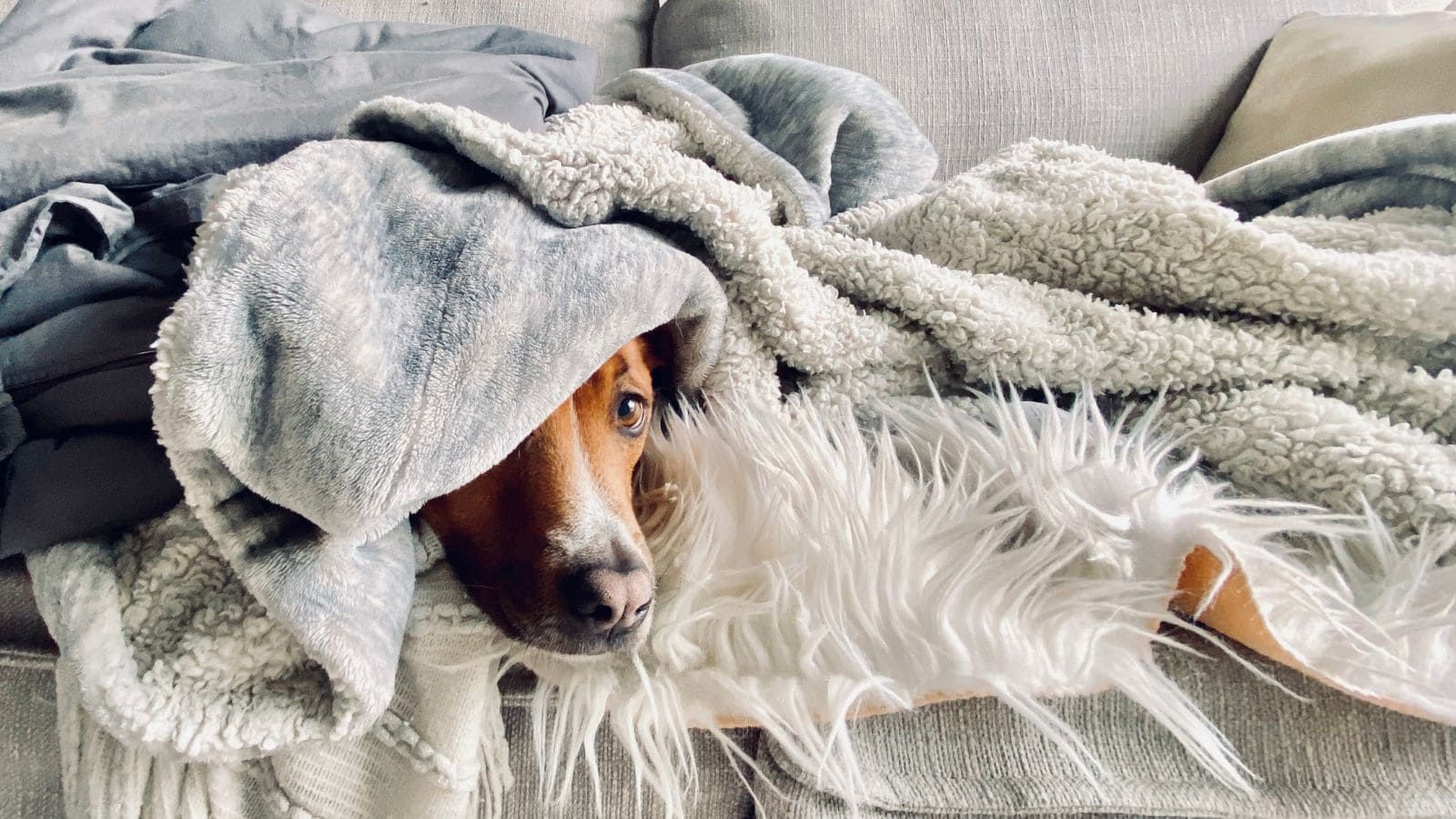
Pets might also carry around items that belong to their owners when they’re away, such as clothing or pillows. This behavior can be comforting to them, though it’s important to ensure that any small or dangerous items are out of their reach.
Checks Regularly for Your Return
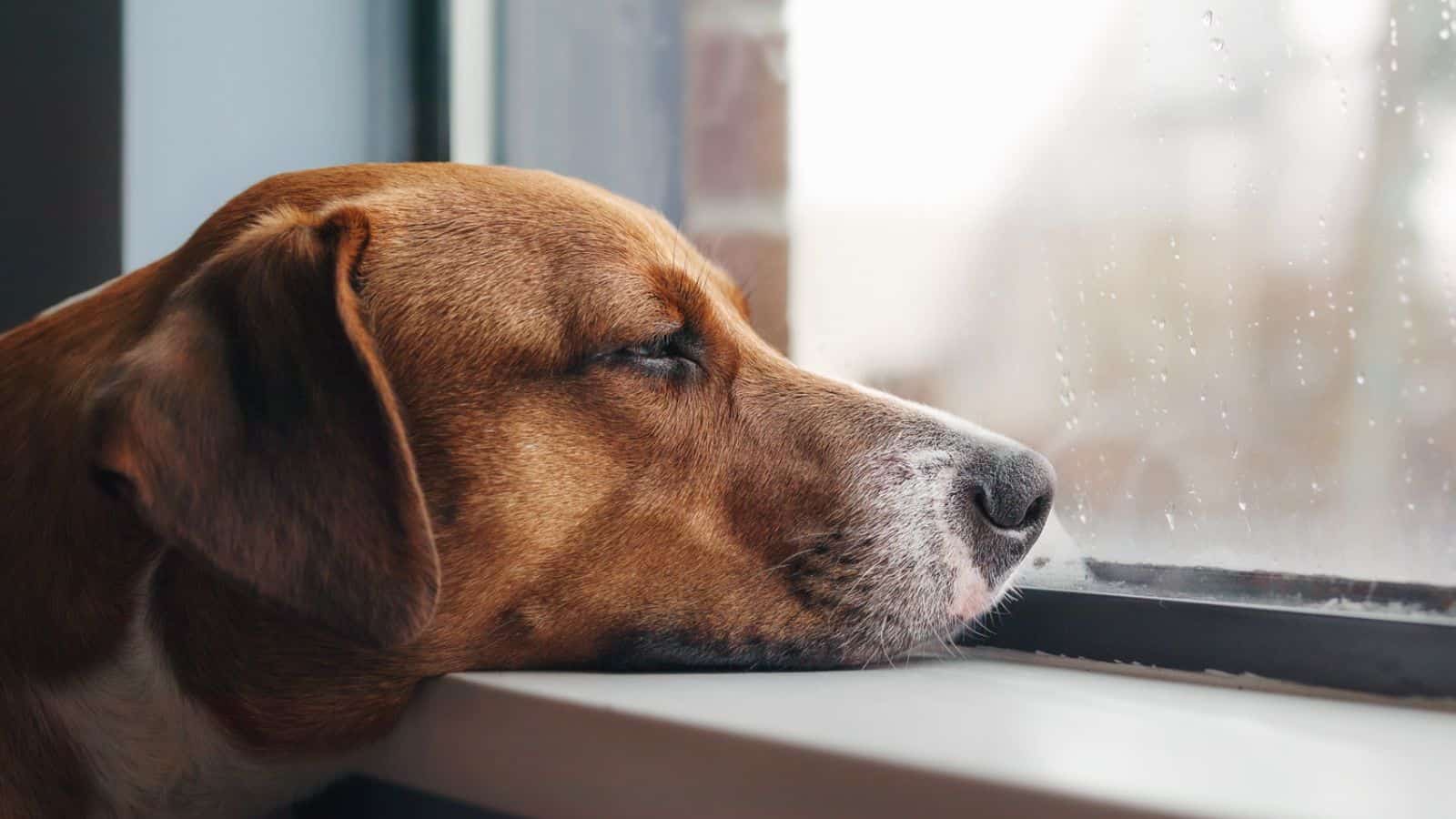
Wag says, “A dog that is sitting by the door waiting for you to come home may be dealing with separation anxiety.” This also applies to cats. A pet that frequently checks if you’ve returned but leaves again is healthier but indicates their anticipation and longing for your return.
Unusual Eating Habits

Dogs and cats may eat non-food items out of boredom or nutritional deficiencies when you’re away. Keeping harmful items out of their reach and maintaining a balanced diet are crucial. Monitor via a camera for signs of pica (eating non-food items) and consult a vet if necessary.
Attempts To Escape

The desire to search for you may lead some pets to attempt escaping from your home, which is a nerve-wracking thought. Be sure to secure your home properly and check fences for potential escape routes. Microchipping and proper ID tags are essential in case they do get out.
Up Next: 19 American Foods that Are Not Allowed in Other Countries

We can debate all day about who has the safest food supply in the world. Though, I’d bet you would be surprised at how many everyday American foods are banned in other countries. Most are due to chemical additives and pesticides, which, in places like the EU, cannot be approved for use unless proven safe. Let’s take a look at 19 of them.
19 American Foods that Are Not Allowed in Other Countries
19 Things That Will Happen When You Stop Drinking Alcohol

Whether you identify as an alcoholic or a casual drinker, alcohol can have a significant negative impact on your health. This is why more and more people are choosing to go cold turkey for the sake of their well-being. If you’re considering going sober but need a little more convincing, we’ve got you covered. Here are 19 things that will happen when you stop drinking alcohol.
19 Things That Will Happen When You Stop Drinking Alcohol
17 Things Guests Actually Notice Right Away About Your House

Inviting people into your home is a big deal. You may be very house-proud or house-conscious, and if you are either, you’ll likely get anxious about hosting. If this sounds like you, stop worrying and focus on the following 17 things that guests actually notice right away about your house.
17 THINGS GUESTS ACTUALLY NOTICE RIGHT AWAY ABOUT YOUR HOUSE

